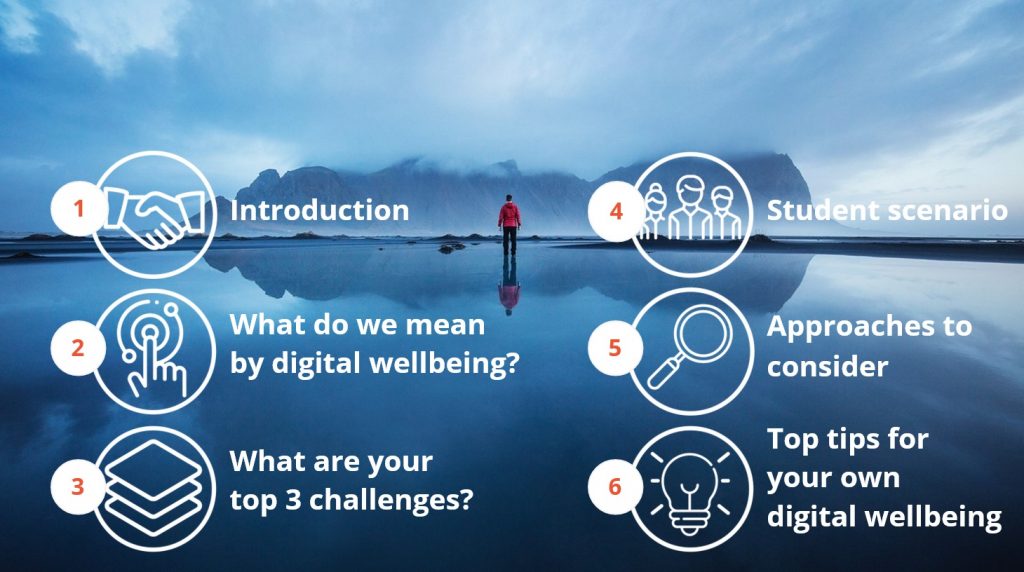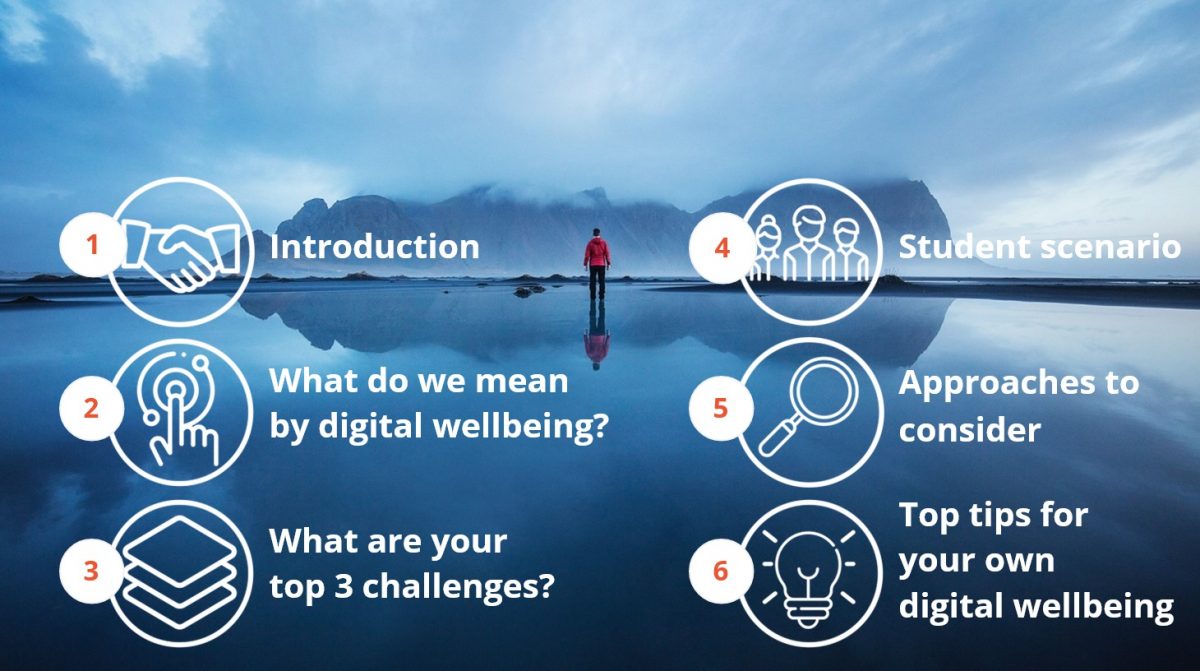I’m thrilled to announce that Jisc’s digital wellbeing taster course went live this week! This is a free taster course designed to help staff consider what types of actions they can take to support learner wellbeing.
How can you use the taster?
The taster includes six short modules that walk staff through different aspects of digital wellbeing.

Although each module builds on previous learning staff are also free to navigate the resource in a non-linear fashion. This allows you to focus on aspects of digital wellbeing that are most relevant. The six modules also work as standalone bite-sized chunks and breakdown as follows:-
- The taster starts with scene-setting and looking at what we mean by digital wellbeing. This is useful for staff new to the subject and introduces Jisc’s digital wellbeing framework (modules one and two).
- Staff are then encouraged to contextualise what digital wellbeing means to them and their learners by prioritising their challenges. The digital wellbeing needs of staff and learners will vary. Empowering staff to start the conversation with learners is critical (module three).
- Starting conversations between staff and learners is a necessary step, but we want to encourage staff to reflect on their role and what they can do to support learners. The taster uses a scenario-based approach here. Staff work through a hypothetical situation of a student in distress and are asked – what approaches can you take to help? (modules four and five).
- Finally, the taster closes with a range of top tips and further resources for staff to explore (module six).
When we were developing the taster we wanted to produce a resource that staff could use in a range of contexts. For example, during an in person workshop or as an asynchronous resource for staff to work through in their own time. It may be that you even want to take some aspects (like the scenario in module four) to use as an activity with staff as part of a broader session.
Further modules
Jisc training offer e-learning modules for other subject areas for education and research institutions. Get in touch if you’d like to find out more about how we can help you.

